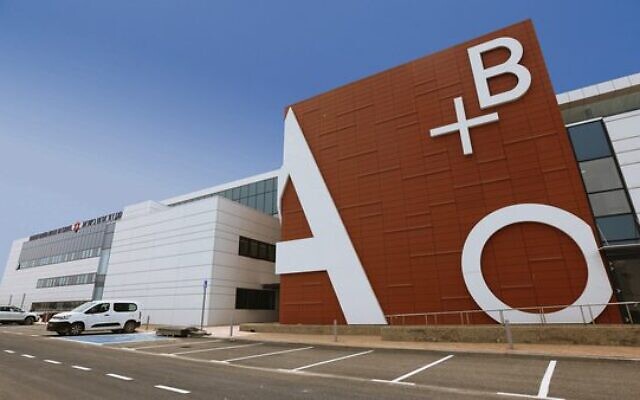Israel’s new blood bank opens
"We have built something that's a new standard in protecting blood, which is important as it's a strategic asset."
The world’s most secure national blood bank opened in Israel on Monday, the most important parts shielded in an underground structure – from terrorism, chemical and biological attacks, and earthquakes.
Magen David Adom’s $135 million Marcus National Blood Services Centre has taken four years and some 11,000 tons of steel to complete. The guiding principle is that the country’s blood supply is a “strategic asset” that may save many lives in emergency scenarios, and as such should be protected.
“We have built something that’s a new standard in protecting blood, which is important as it’s a strategic asset,” said Moshe Noyovich, the engineer who oversaw the project.
President Isaac Herzog, Health Minister Nitzan Horowitz, and other dignitaries attended the inauguration ceremony at the facility in Ramla, central Israel, on Monday. It will process and store almost all of Israel’s blood donations, for both civilians and the military, when it becomes fully functional in the northern summer.
The building is made from non-combustible steel and concrete. There are three levels of protection, with varying security zones. Three floors are above-ground, each with its own shelters. The ground floor has training facilities, an auditorium, a dining area, and a blood donation wing for the public; the second floor houses the human milk bank, where mothers’ milk is collected for premature and ill infants, and more training facilities.
The three underground floors are protected by extra-thick concrete walls, blast doors, and airlocks, as well as shielding from biological and chemical attacks.
The highest underground floor houses shielded blood bank laboratories, a transportation centre, and secure fleet parking for loading blood into ambulances.
The second underground floor houses the cord blood inventory, an R&D molecular lab, and a chemical and biological warfare air-filtration system that enables staff throughout the building to continue working and processing blood in the event of a chemical or biological attack.
On the deepest level is the blood storage vault, a 300-square-metre safe room shielded against the most severe missile threats. Every critical system has a secondary system, including two ramps leading into the underground floors, four sets of elevators, and four generators.
“Israel lives in a dangerous neighbourhood, yet we know that, thanks to this maximum-security facility, Israel’s national emergency medical service can preserve life in the hardest of conditions, and for decades to come,” said Catherine Reed, CEO of American Friends of Magen David Adom.
TIMES OF ISRAEL


comments